Category: Palliative Care
Articles about palliative care including the differences between palliative care and hospice care which is palliative care at end-of-life.
Articles about palliative care including the differences between palliative care and hospice care which is palliative care at end-of-life.

A palliative care doctor shares people's three most common wishes at the end of life: mending relationships, expressing gratitude, and saying "I love you." Planning for a good death with the help of a life transition coach can help you accomplish more meaningful goals and ensure your final days reflect your values.

Chronic Obstructive Pulmonary Disease (COPD) is a serious lung condition linked to smoking and vaping that affects millions of people. Understanding the connection between tobacco use and COPD, recognizing early symptoms, and pursuing timely treatment can significantly extend life expectancy and improve quality of life.

Explore how aromatherapy and essential oils relieve anxiety, grief, loss, and critical symptoms like pain and nausea across all stages of life. Practical, safe use tips are provided for caregivers, doulas, and health professionals to support holistic well-being.
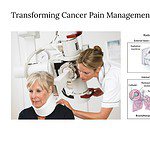
A groundbreaking clinical trial demonstrates that single-fraction radiotherapy alongside supportive care can dramatically improve pain management for liver cancer patients, with 67% reporting reduced pain intensity and potential implications for future palliative treatment strategies.

Navigating the complexities of end-of-life care can be challenging. This article delves into the nuances of terminal agitation and terminal restlessness, providing caregivers and family members with the essential knowledge to better understand and support their loved ones during the final stages of life.

The RAIN method is a powerful mindfulness technique that helps individuals process grief, loss, and anxiety. This four-step approach—recognize, allow, investigate, and nurture—provides a compassionate way to work through difficult emotions. Learn how caregivers, family members, and end-of-life professionals can use RAIN.

Hospice care extends beyond end-of-life support, offering comprehensive services for patients with terminal illnesses. Early enrollment can provide months of valuable support, improving patient and family quality of life through specialized care and resources.
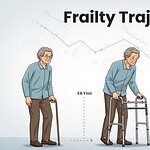
The Frailty Trajectory Model offers a new way to understand how health changes over time, especially for older adults. This approach helps healthcare practitioners and life transition coaches guide patients through illness with compassion and clarity, making it easier to plan care that matches personal values and goals.

Becoming a death doula requires proper training, not just good intentions. While many suggest starting as a hospice volunteer, this path is fraught with problems - from limited training to ethical conflicts. Learn the right way to enter this meaningful field through legitimate certification programs and educational resources.

Recent University of Michigan research found that benzodiazepines and antipsychotics commonly prescribed in hospice care may significantly increase mortality risk for people with dementia. This article explores these findings and provides essential advocacy guidance for families, caregivers, and hospice professionals.
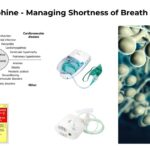
Nebulized morphine provides significant relief for patients with severe breathlessness, especially in end-stage pulmonary diseases. Learn about its application, dosage, and benefits in hospice care.

New research reveals that 37% of advanced cancer patients feel their treatment doesn't match their personal care goals—nearly twice the rate of other serious illnesses. This disconnect highlights our healthcare system's focus on fixing problems after they occur, without considering comfort or quality of life. Discover why planning your values and care preferences before illness strikes can prevent this misalignment and ensure you receive care that truly honors what matters most to you.
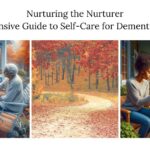
Caring for a loved one with dementia is a challenging journey that can take a toll on caregivers' physical and emotional health. This comprehensive guide offers practical strategies for dementia caregivers to prioritize self-care, manage stress, and maintain their well-being while providing compassionate care for their loved ones.

Discover essential strategies for managing diabetes in loved ones with dementia. This comprehensive guide covers blood sugar monitoring, medication administration, diet management, and recognizing emergencies, empowering caregivers to provide optimal care.

Facing difficult decisions about breathing support at the end of life? Understand the differences between BIPAP, intubation, and ventilators. Learn how complete advance directives guide families toward comfort-focused care and how end-of-life doulas provide affordable, compassionate support during these challenging choices.

Discover the transformative role of Macy catheters in hospice and palliative care. This comprehensive guide explores how these innovative devices enhance patient comfort, simplify medication administration, and support caregivers. Learn about their benefits, proper use, and impact on the quality of life for those receiving end-of-life care.

Deciding when to involve hospice care for a loved one with dementia can be challenging. This comprehensive guide helps non-healthcare professionals recognize the signs that indicate it's time to consider hospice, understand the benefits of hospice care, and navigate the decision-making process with compassion and informed judgment.

End-of-life doulas, also called death doulas or life transition coaches, provide trusted guidance. As independent professionals who support families through illness and transition, we serve as reliable referral sources for hospice agencies and palliative care providers.
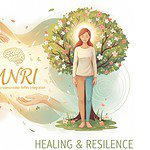
End-of-life doulas play a crucial role in supporting families through grief and trauma. Learn how Masgutova Neurosensorimotor Reflex Integration (MNRI) offers powerful, gentle techniques to help clients process difficult emotions and find healing during life transitions.

Learn how SupportNow.org can transform the way end-of-life doulas, caregivers, and families coordinate practical support during life's most challenging moments. This free platform brings together financial help, meal coordination, volunteer assistance, and family updates in one simple place.

Hospice agencies worldwide face critical staffing shortages, leading to increased reliance on telehealth services. While virtual care helps bridge gaps, the absence of on-site presence creates challenges in patient care. End-of-life doulas offer a compassionate solution, providing essential non-medical support that complements telehealth hospice services and ensures comprehensive care for patients and families.

Discover how the PIE method (Problem-Intervention-Evaluation) can transform your hospice IDT note writing. This simple framework helps nurses create focused, compliant documentation even when patients are stable and well-managed.

Hospice care not only provides comfort but can also extend the lives of terminally ill patients. Learn how holistic support and compassionate care improve longevity and quality of life.

End-of-life doulas are transforming hospice care quality through specialized training and collaborative partnerships. Learn how these compassionate professionals enhance patient experiences, support families, and improve hospice satisfaction scores when properly integrated into care teams.